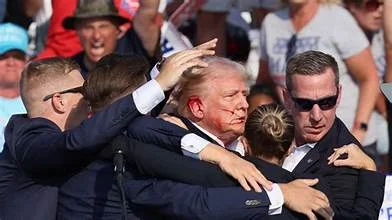In recent weeks, a particular incident involving former President Donald Trump has sparked widespread debate and discussion across media platforms. The reference to Trump and a “shooting” has generated significant attention, drawing in various narratives, opinions, and reactions. Understanding the context of this incident is essential to navigating the complexities surrounding it.
What Happened?
The incident refers to remarks made by Trump during a rally, where he seemed to suggest a violent metaphor regarding his political opponents. While he often employs hyperbole and colorful language, this particular statement raised alarms and ignited controversy among political commentators, media figures, and the general public.
Public Reaction
Reactions have been sharply divided. Supporters of Trump often interpret his comments as rallying cries, seeing him as a bold figure willing to take a stand against what they perceive as political correctness and media bias. Conversely, critics argue that such language normalizes violence and undermines democratic discourse. This dichotomy reflects the broader polarization in American politics today.
Media Coverage
Media outlets have responded with varied approaches. Some have chosen to highlight the potential dangers of violent rhetoric in political discourse, while others have framed it as an example of the sensationalism that often surrounds Trump’s public persona. This discrepancy in coverage illustrates how deeply divided the media landscape is, often mirroring the public’s reactions.
The Broader Implications
The implications of Trump’s comments extend beyond this specific incident. They raise questions about the tone of political discourse in the United States and the responsibilities of public figures to promote civility. As political rhetoric becomes increasingly heated, the risk of misinterpretation and escalation looms larger.
Moving Forward
As the 2024 election approaches, incidents like this will likely continue to dominate headlines and fuel discussions. It’s crucial for voters and citizens to critically evaluate the language used by public figures and its potential impact on society. Engaging in constructive dialogue, rather than falling into the traps of polarization, will be essential for fostering a healthier political climate.
Conclusion
The controversy surrounding Trump’s remarks underscores the complexities of modern political communication. As we navigate these turbulent waters, it’s important to remain vigilant about the narratives we consume and the implications they carry. In an era where every statement can resonate far beyond its immediate context, a commitment to thoughtful engagement and critical thinking will be more important than ever.

